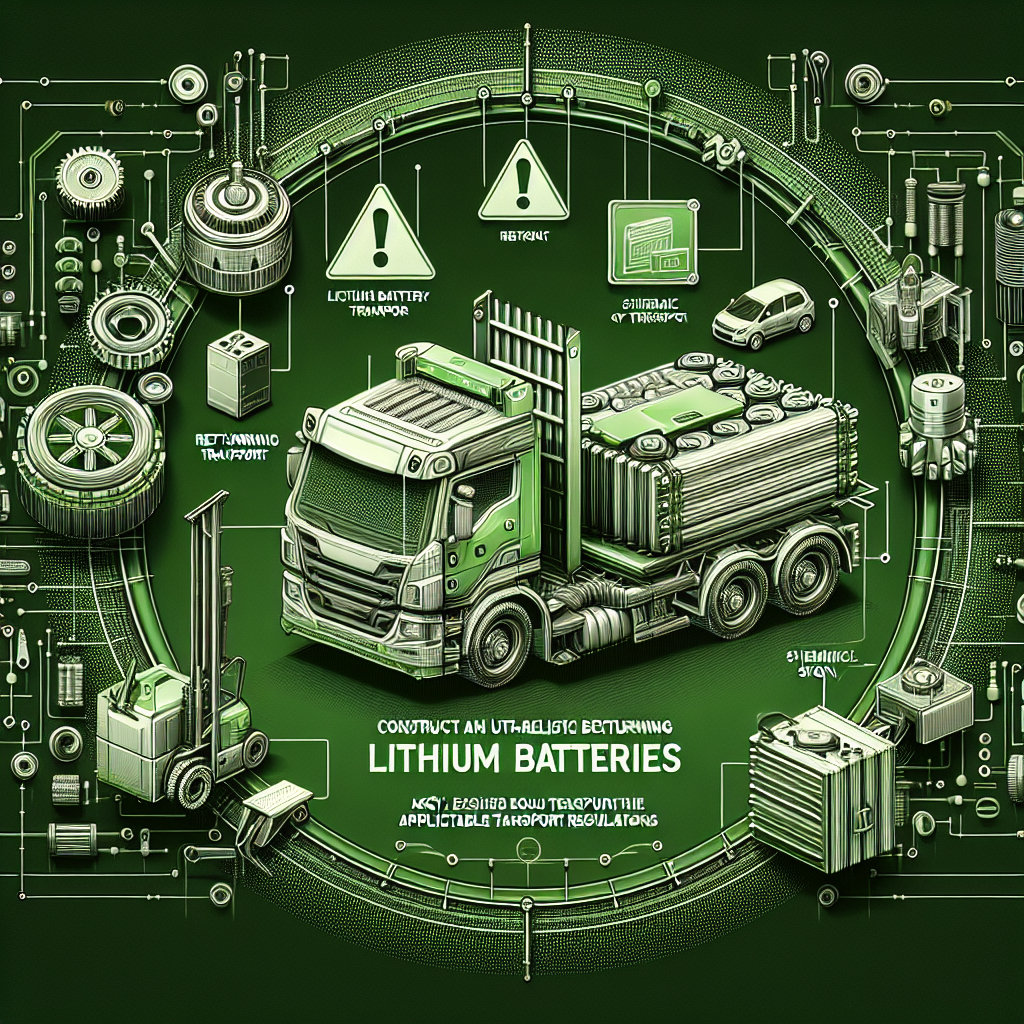Blog Ecobraz Eigre

Lithium battery returns: which ANTT rules apply to transportation?
Introduction to lithium battery returns
The transportation of lithium batteries, especially in returns, requires special attention to the rules in force to ensure safety and legal compliance. The ANTT (National Land Transport Agency) establishes specific rules for the transportation of these loads, ensuring the integrity of people and the environment.
Characteristics of lithium batteries
Lithium batteries are considered dangerous products due to their energy potential and risk of fire or explosion. For this reason, their transportation is subject to specific regulations that limit forms, packaging, quantities and transportation conditions.
ANTT regulations for the transportation of lithium batteries
The main regulation governing the transportation of lithium batteries is ANTT Resolution No. 5,232/2016, which provides for the transportation of dangerous goods by road in Brazil. In addition, it incorporates UN recommendations for the safe transport of dangerous goods, such as the UN Manual of Tests and Criteria.
Classification and mandatory labeling
Lithium batteries are classified within the dangerous goods group class 9 - Miscellaneous Dangerous Goods. Transportation must follow the packaging, marking and labeling requirements as established in NR 5.232, including the use of the dangerous goods label with the specific pictogram for lithium batteries.
Documentation required for transportation
For transportation of returned batteries, it is mandatory to fill out the Dangerous Goods Transportation Document (DTDP), with detailed information on the sender, recipient, cargo description, class and quantity transported. The driver must also carry the Emergency Manual and be trained for risk situations.
Packaging and wrapping
The ANTT requires that batteries be packaged safely, avoiding short circuits or damage that could cause dangerous reactions. The use of approved, resistant packaging that follows the safety tests indicated in the UN Test Manual is mandatory for returns.
Safe transportation and handling
During transportation, it is recommended that batteries be stored in ventilated areas and segregated from flammable or combustible materials. The vehicle must be equipped to minimize impacts and avoid accidents. ANTT inspectors can suspend or seize loads that do not comply with the rules.
Penalties in the event of non-compliance
Non-compliance with ANTT rules can result in fines, seizure of the load and suspension of delivery. Safety in the transportation of lithium batteries is not just a legal requirement, but an essential practice to prevent the risk of serious accidents.
Final considerations
Returns involving lithium batteries require special attention in the packaging, documentation and transportation stages to comply with ANTT rules. Following these rules guarantees operational safety and environmental preservation, protecting all those involved in the logistics process.

Deixe um comentário
O seu endereço de e-mail não será publicado. Campos obrigatórios são marcados com *